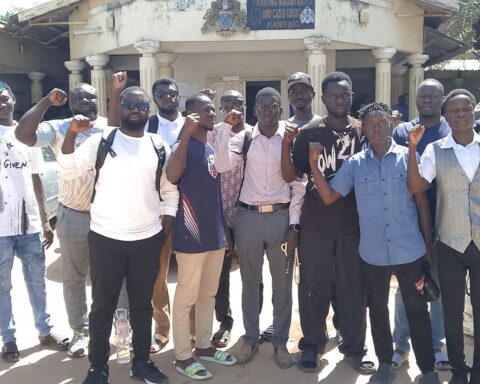Under the auspices of the Ministry of Trade, Industry, Regional Integration and Employment, recently held a significant VALIDATION WORKSHOP for the NATIONAL LABORATORY POLICY at the beautiful Tamala Hotel.
This workshop marks a crucial step towards empowering our laboratories with the autonomy, mandates, and governance structures they need for effective and accountable operations. With the implementation of this policy, we aim to enhance the quality and reliability of laboratory services in The Gambia, ultimately benefiting our economy and public health.
According to Permanent Secretary, Mr. Mod A.K. Secka, one of the most transformative aspects of the National Laboratory Policy is the establishment of a Joint Committee for the Implementation and Monitoring of the Policy, which will be coordinated by this Ministry. This multi-sectoral body, he said, will bring together stakeholders from ministries, regulatory agencies, the private sector, academia and consumer groups. This, he added, will ensure inclusive governance, shared accountability and coordinated action preventing duplication and promoting cost-efficiency through joint procurement, shared infrastructure and harmonized training.
“The Policy also identifies strategic interventions such as the creation of a National Laboratory Equipment Repair Centre, a centralized procurement framework, participation in inter-laboratory comparison and proficiency testing and investment in technical training for laboratory professionals. Importantly, it calls for the revision of colonial-era legal instruments that no longer reflect the current operational realities or aspirations of our National Quality Infrastructure,” he stated.
DG Secka of The Gambia Standards Bureau affirmed that a developed and resilient National Quality Infrastructure, in general, and a Laboratory Infrastructure, in particular, are critical elements to access and profitably compete in both the domestic and external markets. Indeed, he noted, laboratories are a key pillar of a national conformity assessment capability to assess the compliance of products against regulatory requirements, applicable standards and global trading requirements. “These undeniable obligations are what make timely laboratory services crucial to the national economy,” he said.
A big thank you to all participants and stakeholders who joined us in this vital initiative! Together, we are paving the way for a stronger future in laboratory standards and practices. Let’s keep working towards excellence!









Một trong những lý do khiến game 66b được yêu thích là tốc độ nạp rút nhanh chóng qua nhiều phương thức phổ biến tại Việt Nam. Giao dịch minh bạch, xử lý tự động giúp người chơi an tâm khi tham gia lâu dài. TONY02-03